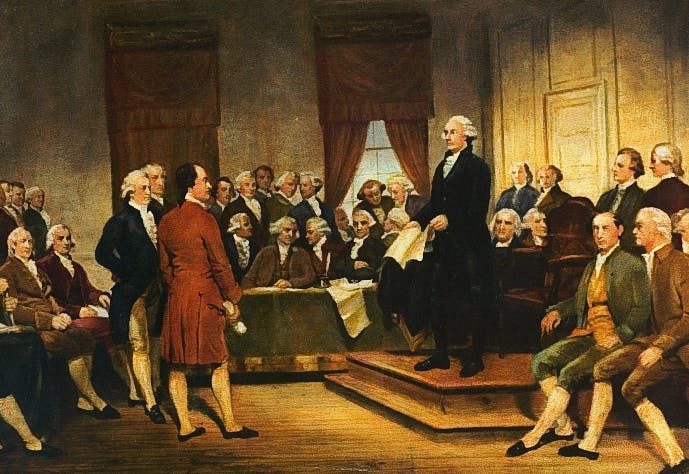Mike Pence’s Immunity
If the special prosecutor, Jack Smith, wants to question the former vice president, maybe he should run for Senate.

News this morning that Vice President Pence is gearing up to contest special counsel Jack Smith’s subpoena on the basis of the Constitution’s speech or debate clause — its protection for legislators — suggests that Mr. Pence understands the nuances of the offices he held. It also indicates that Mr. Pence will go his own way, betting that the designs of the Framers will spare him a sit-down with President Biden’s Department of Justice.
The speech or debate clause has been a long-time enthusiasm of the Sun. It ordains that for any speech or debate in either house, the senators and representatives shall not be questioned in any other place. We marked it most recently when prosecutors in Georgia haled Senator Graham before a grand jury to be questioned on President Trump’s meddling in the Peach Tree State’s election. Mr. Graham claimed privilege under the famous clause.
We wrote about it in an editorial called “Any,” and were shocked when the appeals court gave Mr. Graham only partial protection. The Framers saw the speech and debate clause as a bulwark against the kind of tyranny they had known under George III and feared might be attempted by the federal government they were establishing. Mr. Graham’s case turned on whether he was “acting in the sphere of legitimate legislative activity.”
This immunity is different from that Mr. Trump is likely to assert in the face of the special prosecutor. Mr. Trump was not a member of the legislative branch. The protection he might seek would arise from what is called “executive privilege,” which is not absolute and — unlike speech or debate — is not enumerated in the plain language of the Constitution. We are not suggesting Mr. Trump lacks this privilege, though it was denied to President Nixon.
Mr. Pence’s fight will center on a more foundational question: Is the vice president legitimately part of the legislature? The New York Sun Reporter’s Handbook and Manual of Style, while not technically part of what the Constitution calls the “supreme law of the land,” does ordain that the vice president is to be written about as part of the legislative branch, for the only constitutional assignment he gets is president of the Senate.
It appears as if the Democrats agree. They celebrated Mr. Pence when, on January 6, 2021, he not only refused to leave the Capitol building — under threat of a hanging — and confined his role to the unsealing of the electoral vote. One confidant of Mr. Pence tells Politico that the former vice president “thinks that the ‘speech or debate’ clause is a core protection for Article I, for the legislature” and “goes to the heart of some separation of powers issues.”
Mr. Pence might argue that in rejecting Mr. Trump’s pressure campaign to overturn the election, he was constitutionally not a subordinate of Mr. Trump but an officer of the Senate in his own right. It appears as if Mr. Trump also saw him that way, inasmuch as he insisted, incorrectly, that Mr. Pence had the ability to commandeer the session over which he presided. Having rebuffed pressure then, his case for immunity is strong now.
Inconveniently for Mr. Smith, the Department of Justice looks to agree with that assessment. In the case of Brunson v. Adams, a pro se plaintiff sued nearly 400 members of Congress, President Biden, Vice President Harris, and Vice President Pence for failing to investigate fraud in connection with the 2020 election, an omission he likened to an act of war. His case was eventually denied certiorari by the Supreme Court on jurisdictional grounds.
In rebutting Raland Brunson’s claims, the DOJ bolstered Mr. Pence’s. The government urged dismissal because the causes of action centered on “accepting the electoral college votes during one of the most important functions of Congress,” and are thus barred by the “absolute legislative immunity under the Speech or Debate Clause of the Constitution.” By what logic would such “absolute” immunity not cover the president of the Senate itself?
This case is young, but it wouldn’t surprise us that it could yet reach the Supreme Court. At the heart of the controversy, after all, is Mr. Pence’s participation in — his presiding over — a joint session of Congress to count the vote as mandated by the 12th Amendment. It is clearly an assignment to the “legislative” branch. It might well be the case that if Mr. Smith wants to question Mr. Pence, the prosecutor would have to get himself elected to the Senate.

